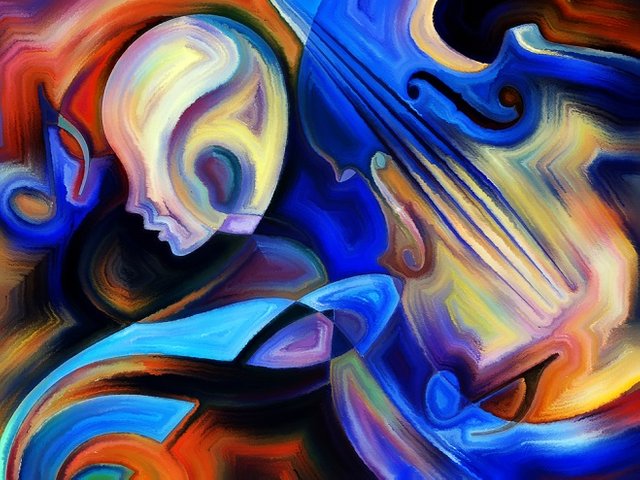Emotional and behavioral psychic processes: emotions and feelings, instincts, arbitrary movements and will. The problem of freedom of will and personality. /part 3/
The radical constructivists who have worked on this issue are convinced that the whole emotional life of man consists of fulfilling "roles". The constructivist position on the subject can be summarized as follows: the subjective experience of psychological significance is the main distinguishing feature of emotions, and in humans this significance is set and changed within a particular culture. There is also a theory that has gained a successful synthesis between the ideas of a biological and socio-cultural approach to emotions.
In it the reason lies in the idea that emotions as subjective phenomena perform various functions in human life on the basis of many experience qualities. It distinguishes emotional experiences and emotional objects. It is believed that full emotion consists of an emotional object - an "evaluated object wearing a meaningful structure" and an emotional process - it expresses the dynamics of the five main components (affective qualities, assessment, readiness to act, excitement, more sensual significance) the unfolding of the specific situation. Full emotion is the unity between object and process that performs a real role of control and regulation of human behavior. It is believed that there are two more types of "incomplete" emotions - virtual - that do not affect the readiness to act and do not cause behavioral effects and "small" - fleeting feelings that may have physical components but may not have, they do not interrupt the work of man.The number of psychological uses of emotional phenomena in humans and the wide range of their influence on behavior is great.
Emotional functions as I said are not much, namely: they signal the current status and the process of meeting biological needs; point to immediate readiness to act or actually create it; tonicize the subject; make attention more resilient to objects and events that are significant to the subject; they signal danger or subjective well-being through primary experiences of pain and pleasure; give rise to concrete experiences of meaning and nonsense; create an aggregate effect of being in one entity - of consistency with itself, with others and with the world as a whole; generate generalized or specific expectations for upcoming events. The constructor and maintain "the feeling of self"; transmit effective valence to individuals, objects, and events; lead to the learning of "stimulus-affective ties"; generate a vector of direction from the world to the subject or the general; incite to enter or exit a situation; create a common coloring effect; represent a moral character and manage the impression the individual creates in others; evaluate the probable success of the action in current circumstances; participate in the experience of "the incitement of property"; make the impersonal objects into desirable, and the desired objects in actual use; engage in the emergence and amplification of multiple destructive and disorganizing behavioral trends; anticipe and evaluate possible emotions; serve as "pointers" of the paths to the mourning experience; manage cognitive processes in problematic situations; have a creative effect; lead to sharing, etc.
As a conclusion from the few functions described above, it can be said that emotions are the bond of the subjective block of the psyche. They can resist realities in the world of the subject and the outside world, but they can also join each of them and experience them as aspects of their situational meaning. Emotions are the most noticeable ingredients of our experiences.

To listen to the audio version of this article click on the play image.

Brought to you by @tts. If you find it useful please consider upvoting this reply.